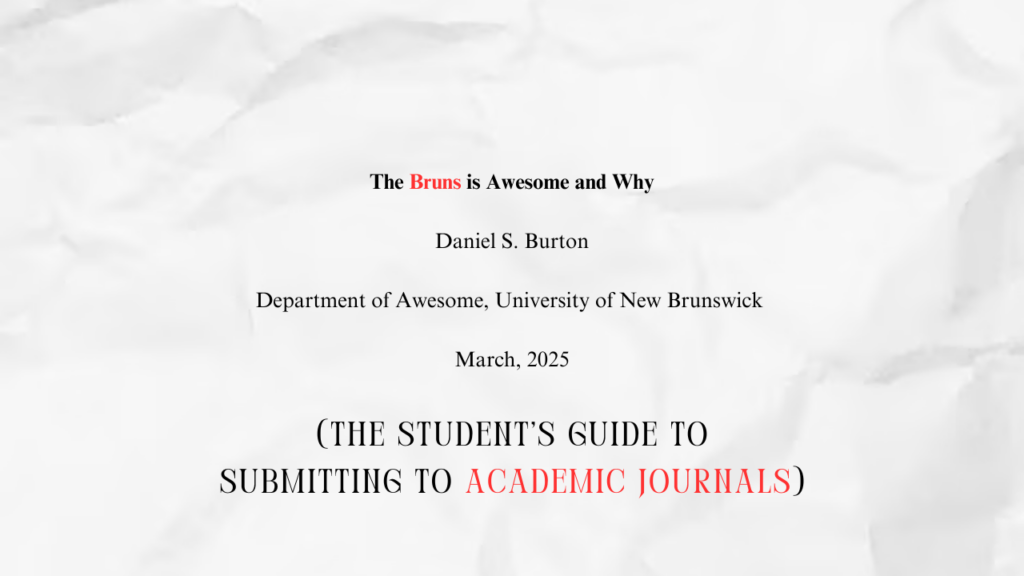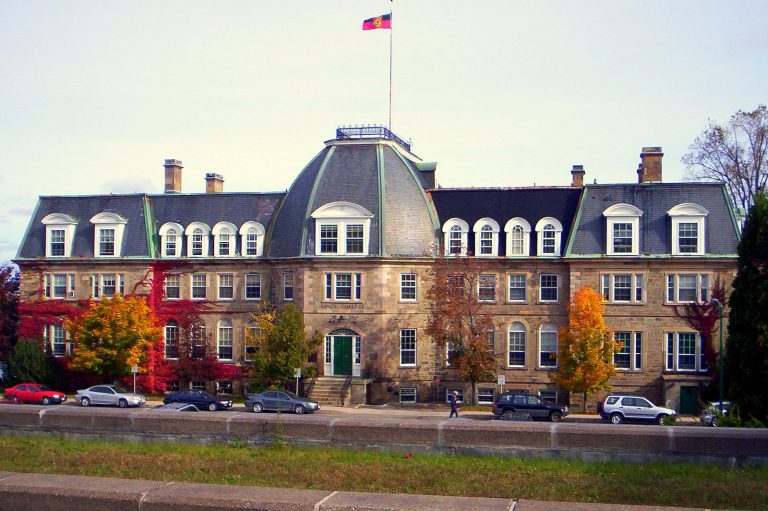Daniel S. Burton
Entering the world of academia is a huge jump: analyzing subjects, writing essays… But what if you wrote a good one? What if your course, or major, or even dissertation really grabbed you… And what if the result was an academic study or paper that the world needs to read?
The Brunswickan agrees, voice your words to the world! Here are some ways to get your work out there.
Starting out is the toughest. For trying to seek new voices, academic journals sure are hard to find! But do not fret, there are resources for tracking down the right journal for you.
Seek out calls for papers — and try not to get tired of hearing those three words. Calls for papers are requests released by journals specifically looking for work on a specific topic. These calls are a great way of finding a journal trying to buy what you are selling! Ironically, Call4Paper.com is one famous frenemy on your submission journey. Call4Paper is the largest list of calls for papers, helping students find journals, anthologies, workshops, and submission opportunities worldwide. The site breaks down calls for papers into faculties: everything from Engineering & Computer Science to Humanities, Literature & Arts. Call4Paper and similar sites are updating constantly, so the hunt is a regular practice. Type keywords relating to your research and hope, then move on. Repeat the process if adamant on these search engines, though there are other methods for the dedicated spirits.
Other search engines (which can be just as, if not more, effective) include:
- Science Direct
- CFP List
- WikiCFP
- Nature
- And scholars even recommend trying your hand on Twitter.
Now, if you are like me, your papers may be too niche to stumble upon a perfect match in the sea of a search engine. Here is where we dig our hands in the sand! If you are a student at the University of New Brunswick, or a similar institution, you have access to UNB Libraries (UNB Libraries) or some such database. Utilize it!
UNB Libraries unlocks hundreds of thousands of articles, many, believe it or not, published by journals looking for submissions! UNB Libraries provides access to another database, JSTOR (jstor.org). JSTOR is a digital archive for back issues of scholarly journals in the humanities, social sciences, and mathematics. If you know of (or can conjure up) titles, studies, or topics similar to your own, you can learn who published them. With ease, you can find journals who publish similar work via JSTOR, typically in a publisher information page or along the headers or footers of an article’s PDF. From there, Google the journal, find their guidelines, and choose the journal to which your work is best suited. Larger universities are also known to have faculty journals, and even undergraduate specific journals.
Many journals are open year-round for submissions — some only accepting work from graduate students — so be on the lookout. For the undergrads, an undergraduate faculty journal may be more likely to consider your piece. If your work is unorthodox, try a multidisciplinary journal to cover the most ground.
Also, remember, each faculty requires different citation styles…
English Language and Literature, Foreign Languages and Literatures, and Cultural Studies use MLA; Social sciences (Psychology, Linguistics, Sociology, Economics, Criminology, etc.), Business, and Nursing use APA; Philosophy and History use Chicago. Trust me; and if not me, trust OWL Purdue.
But beware! Journals have word limits, writing guides, etc., so have a journal in mind before you put pen to paper, or get the red one out to make your work fits their rules.
Best of luck finding a home for your paper… and email The Bruns if you ever write news.
Happy editing, hunting, and submitting, writers!




